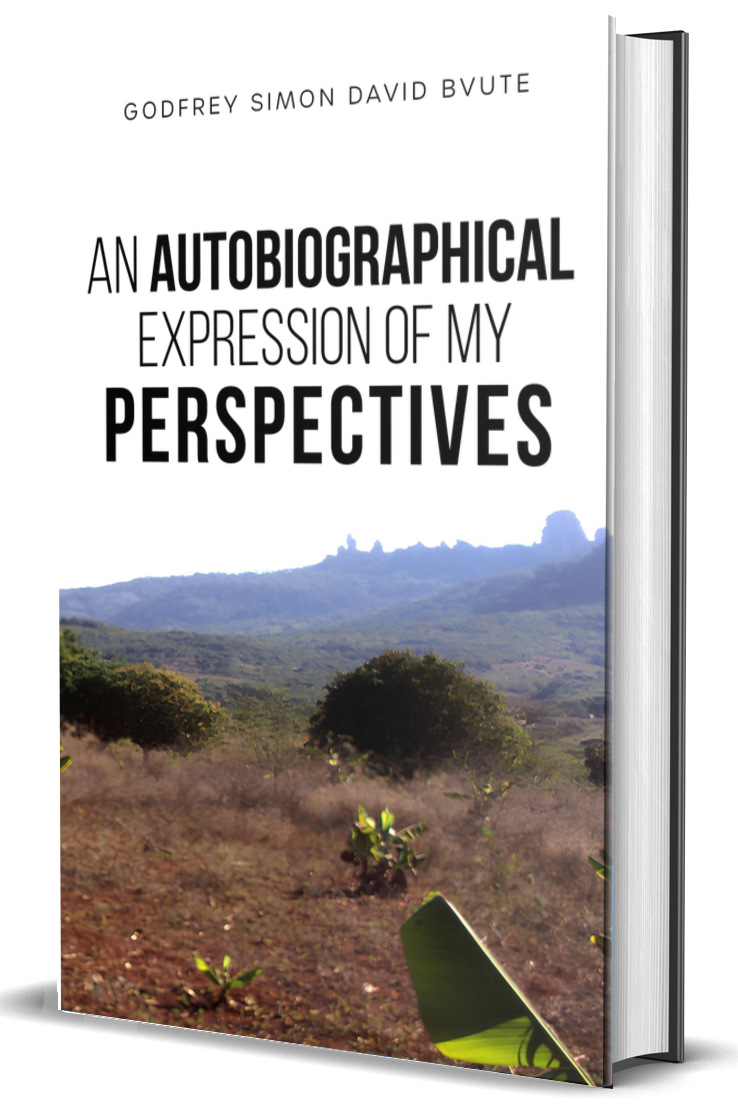In a world of shifting moral landscapes and ideological confusion, religion remains a steady compass for many. In AN AUTOBIOGRAPHICAL EXPRESSION OF MY PERSPECTIVES, Godfrey Simon David Bvute takes us on an intimate journey through his personal history—one that weaves faith, family, and social responsibility into the fabric of his life’s work and character. His story is a powerful testament to how religion can shape moral identity from childhood through adulthood.

Godfrey’s moral framework was established early in life within the walls of St. Peter’s Anglican Mission in Mandeya, Honde Valley. As a child, he was immersed in the rhythms of Anglican liturgy, choir hymns, and all-night prayer services. His recollections of the crucifix inside the church—revered and awe-inspiring—offer a glimpse into the sacred reverence that anchored his worldview. Religion was not just belief; it was tradition, identity, and a deeply personal relationship with God.
What makes Godfrey’s narrative compelling is its honest wrestling with modern-day tensions between traditional religious teachings and evolving societal norms. While his foundation was deeply Christian, he openly addresses controversial issues such as homosexuality, religious intolerance, and the role of the Church in state affairs. These reflections are not moral proclamations but personal reckonings—a man striving to reconcile his upbringing with the complexities of contemporary life.
Godfrey emphasizes that one’s moral compass is not shaped in isolation. The values of honesty, discipline, kindness, and respect were modeled for him by parents, grandparents, and community elders. However, it was his religious upbringing that gave these virtues permanence. It reinforced the idea that accountability transcends earthly consequences; that one’s actions are ultimately seen and judged by God.
Even during his global travels and tenure with the United Nations, Godfrey retained the religious grounding that he says shaped his sense of justice and empathy. In politically and socially volatile contexts, it was this grounding that helped him remain principled and people-focused. His faith wasn’t just about Sunday services—it became a lens through which he interpreted the world and his role in it.
But his religious life is not without its painful moments. The desecration of St. Peter’s Anglican Church during the war, including the destruction of the crucifix, deeply scarred him. It marked a symbolic loss of innocence—a rupture between the sanctity of faith and the brutality of war. Yet even in that grief, Godfrey found resilience. Faith, he says, must evolve and endure, even when the institutions that once carried it falter.
Today, as a husband, father, and community elder, Godfrey continues to uphold the moral values that were seeded in his early years. His story serves as both memoir and mirror, inviting readers to reflect on their own moral journey. Are our values shaped by genuine belief, or by social performance? Do we carry our faith into our daily decisions, or leave it behind at the church door?
AN AUTOBIOGRAPHICAL EXPRESSION OF MY PERSPECTIVES is not simply about one man’s spiritual journey—it is a call to examine the roots of our own. In an age where moral relativism often clouds clarity, Godfrey Bvute’s story reminds us that a life grounded in faith can still be open, evolving, and profoundly human.